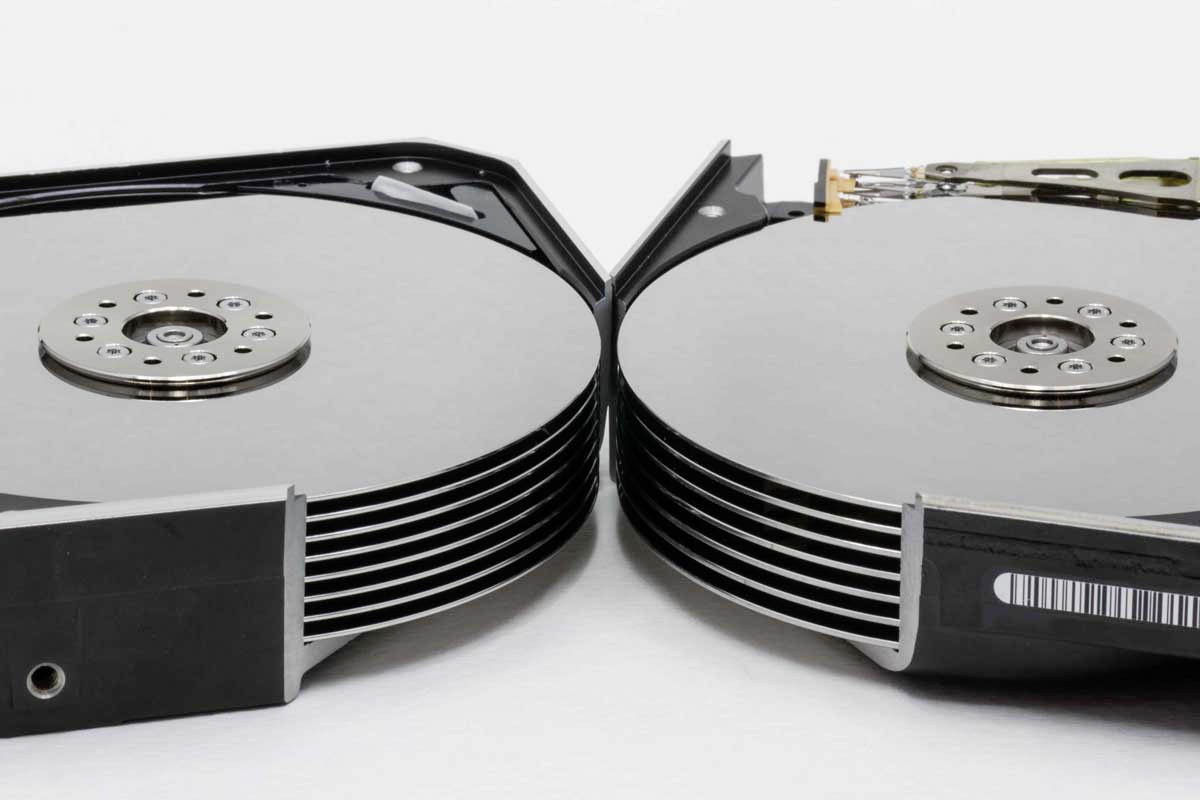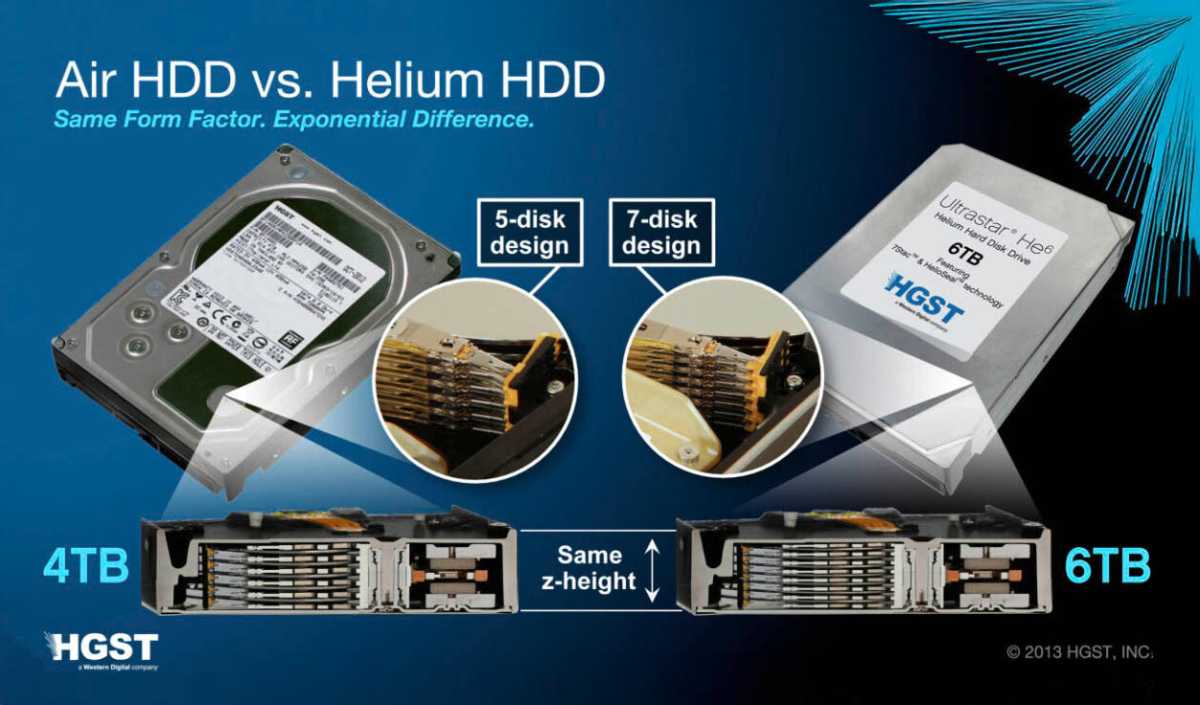Air is traditionally used as a filling medium in hard drives. However, because of its higher density, it creates resistance, which increases energy consumption and puts more strain on the mechanical components. This is an issue in hard drives that pack in a lot of data since it can slow things down.
Helium, though, is way less dense than air (about seven times less), so there’s a lot less resistance. That means the parts inside don’t have to work as hard, it uses less power, and the drive lasts longer.

IDG
A key advantage of helium is that it allows more discs to be fitted into a compact housing, significantly increasing storage capacity. This is an important benefit for data centers where space and energy efficiency are critical.
Lower friction in helium HDDs also enables more precise movement of the read and write heads, improving both speed and reliability. However, helium in HDDs isn’t without drawbacks: it tends to escape through even the smallest leaks. To counter this, manufacturers use complex sealing techniques, which raise production costs.
Additionally, helium is a limited resource in high demand across other industries, such as medicine. Even with recycling efforts, long-term availability remains a concern.

HGST
For private users, the advantages of helium HDDs are usually not decisive. The higher price is only worthwhile for extreme storage needs in very limited space. In most cases, conventional HDDs or consumer SSDs are the cheaper and often more powerful alternative.
Login to add comment
Other posts in this group


Support for Windows 10 is set to end in October 2025, but that doesn’

CDs aren’t exactly cutting-edge in 2025. Since the peak years around



TL;DR: Visualize anything—workflows, org charts, net

Just because it’s tiny doesn’t mean it’s not powerful. This Kamrui Hy
